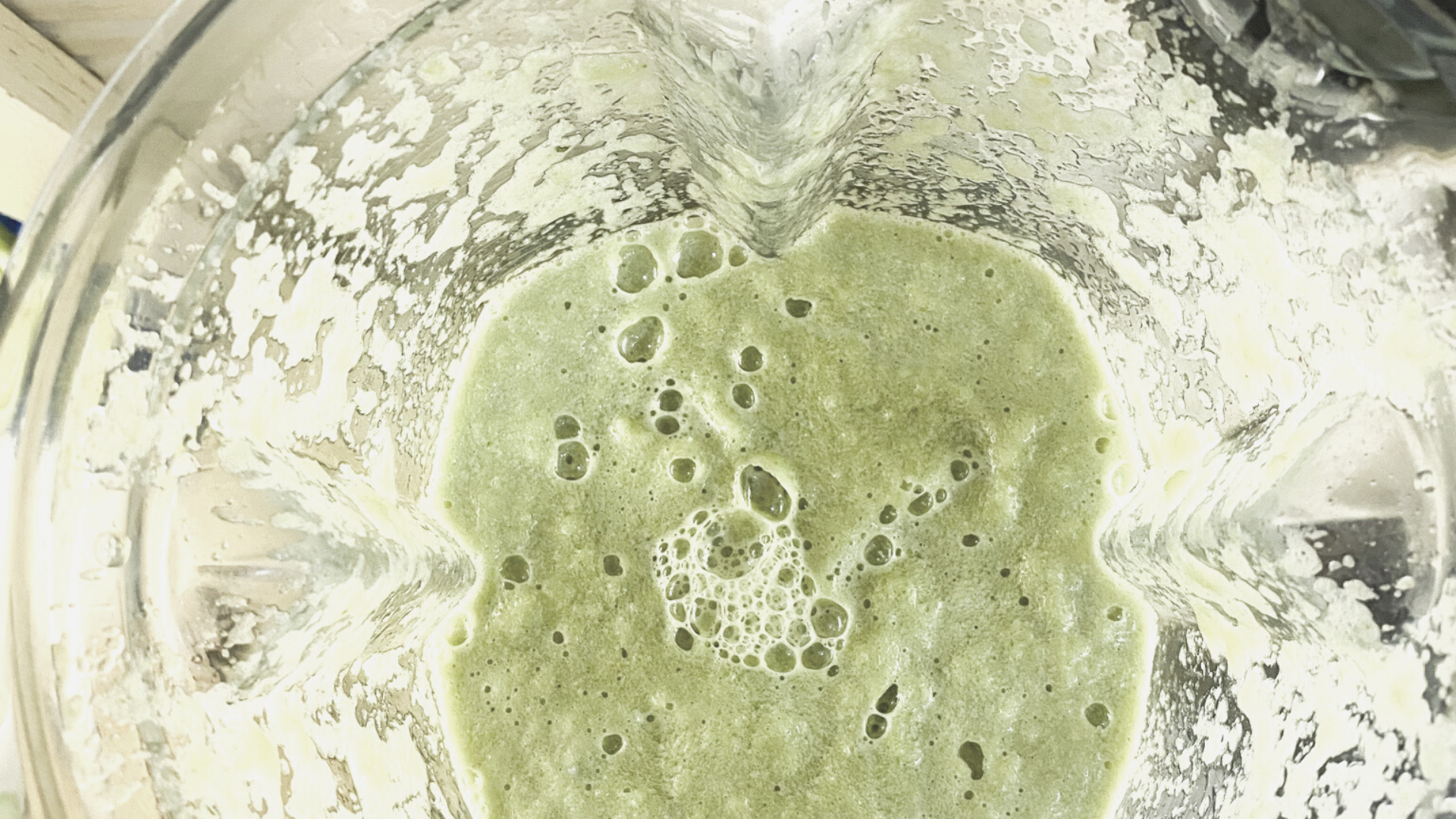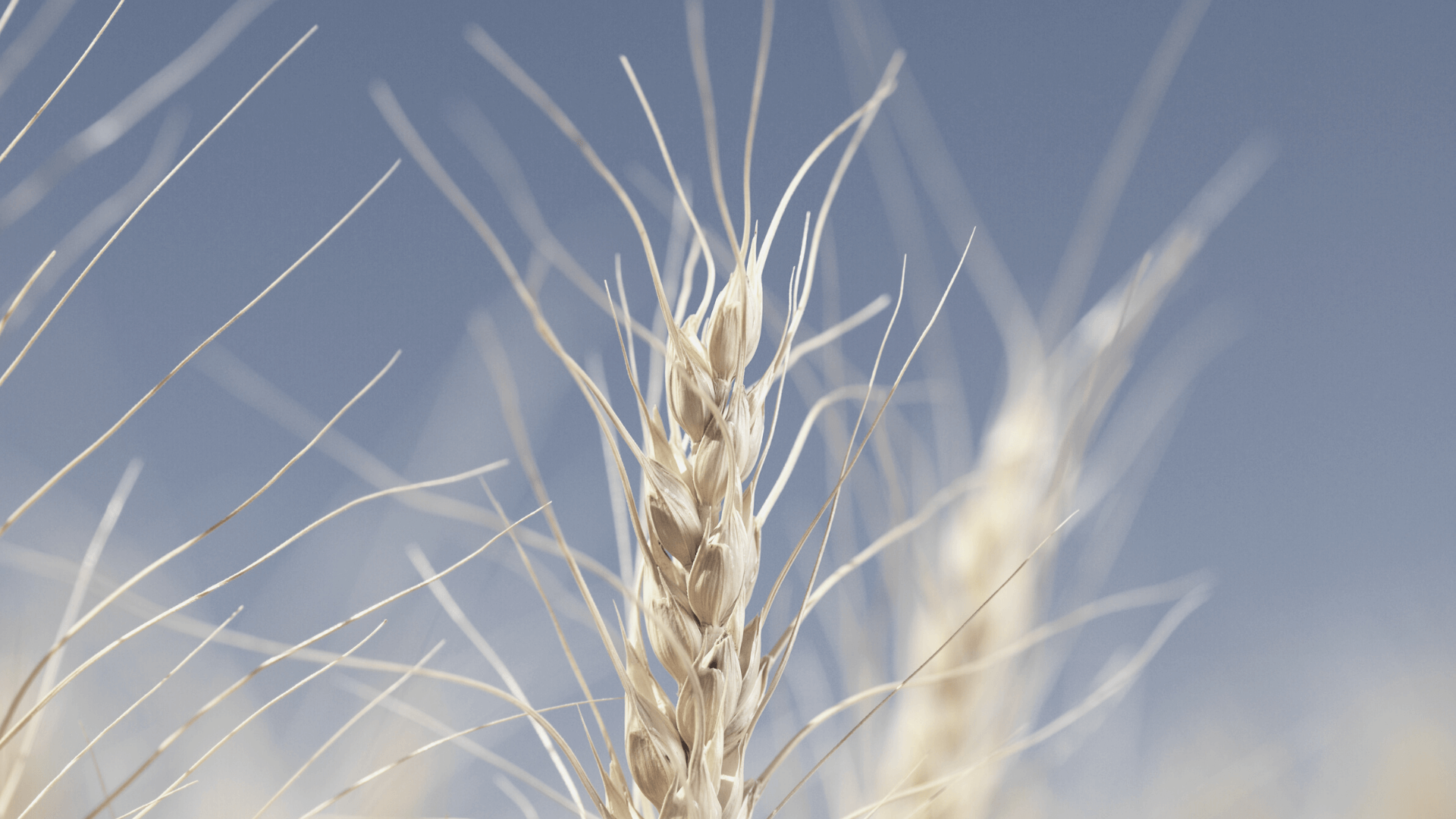What is the oral allergy syndrome chart?
Let’s first start with this.
Not all reactions to food occur because of digestion.
If you have seasonal allergies to pollen or grass and find yourself reacting to different foods more often during those seasons, your gut may not be to blame.
Fall Allergies
Fall allergies are mostly due to ragweed. Did you know that a single ragweed plant can produce up to 1 billion grains of pollen per season?
In addition to ragweed, here 3 other common fall allergens:
- mold and mildew
- dust mites
- pet dander and fur
Gross, right?
But still, you’re wondering….
Okay, so what does that have to do with my itchy mouth?
Oral Allergy Syndrome and Reactivity Definition
Oral Allergy Syndrome, also known as Pollen Food Allergy Syndrome or PFAS occurs when the body has a cross-reaction to the allergens of pollen that can be found on raw fruits, vegetables, and some tree nuts (source).
This “cross-reaction” occurs when the immune system confuses proteins in the foods for proteins in pollen and reacts as if you’ve come into contact with pollen itself.
Because of this, people with oral allergy syndrome are usually positive on allergy tests for birch, grass, or ragweed pollen (source).
PFAS typically affects adults and young adults, and is rare in children.
Common Symptoms of Oral Allergy Syndrome
The term Oral Allergy comes from the localization of the symptoms to the mouth and face.
Common symptoms of PFAS (Oral Allergy Syndrome) are:
- Itchy mouth, namely roof of mouth itchy
- Scratchy throat
- Swelling of the lips, mouth, tongue, or throat
- Itchy ears
- Hives on the mouth
- Itchy tongue
Symptoms are usually mild and occur quickly after consuming a bite of the food.
They usually disappear after you’ve finished eating.
The season that you eat the food during may also affect the reaction’s severity. If it’s during a high pollen season, the reaction could be more severe than during a low pollen season (source).
Oral Allergy Syndrome Chart
Click HERE to save this post for later.
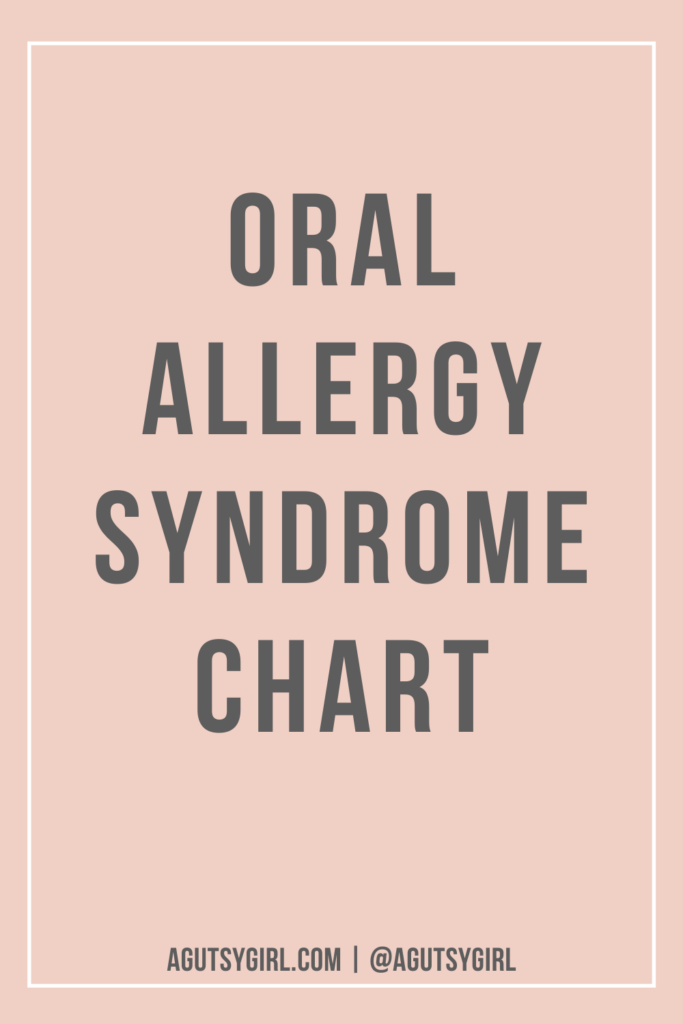
So, then, what exactly is the Oral Allergy Syndrome Chart?
If you’re aware you have an allergy to a specific type of pollen, you may be more sensitive to the family of foods it’s often found in.
Using the oral allergy syndrome chart can help narrow it down. This chart may also help if you have a few different food allergies, but are unsure which type of pollen is the culprit.
Now would also be a good time to tell you that this process of testing and narrowing, making connections and correlations to food, allergen categories, and reactions, is made far easier with my 90-day gut healing journey journal.
If you want to print it off yourself and start today, you can HERE.
The most common cross-reaction cause is a birch allergy.
Birch trees release their pollen between January to April, depending on where they grow. (source)
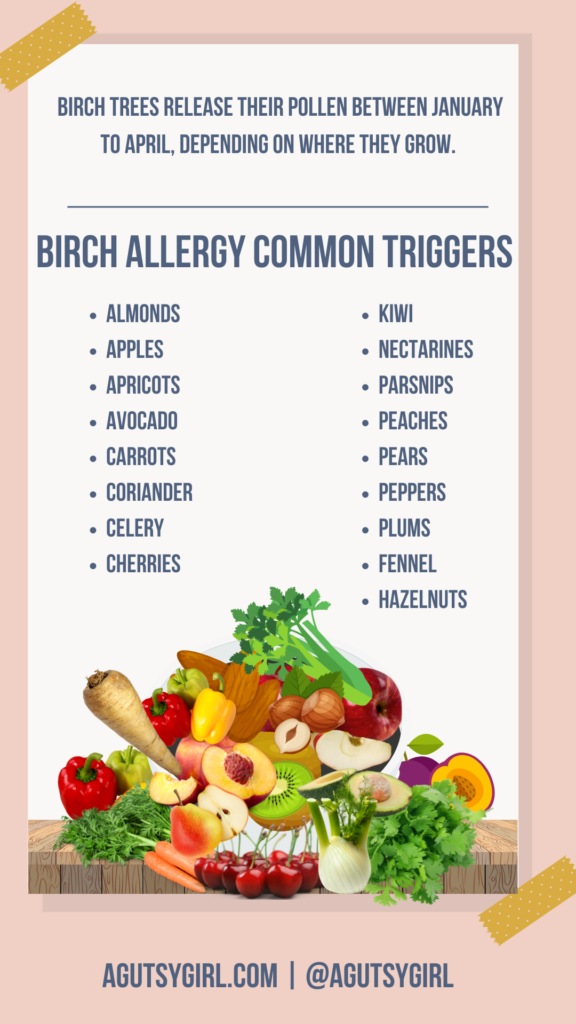
Birch Allergy Common Triggers
- Almonds
- Apples
- Apricots
- Avocado
- Carrots
- Coriander
- Celery
- Cherries
- Fennel
- Hazelnuts
- Kiwi
- Nectarines
- Parsnips
- Peaches
- Pears
- Peppers
- Plums
So ask yourself, “From January through April, does my mouth itch when I have an apple?”
Do make note: Just because you have an allergy to one of these families of pollens, does not mean your body cross-reacts to all of the possible foods related to that pollen.
Apple Allergy
Apples are in the Oral Allergy Syndrome Chart. If you do react significantly to them, you’re also more likely to react to other items on the birch list.
However, some people with an apple allergy might even develop severe symptoms, like anaphylaxis. In this case, your symptoms would extend far beyond a painful or irritated mouth.
If you begin having trouble breathing, experience wheezing, or have a sudden dip in blood pressure, be sure to call for emergency help.
Though birch is the most common, there are other allergy triggers as well.
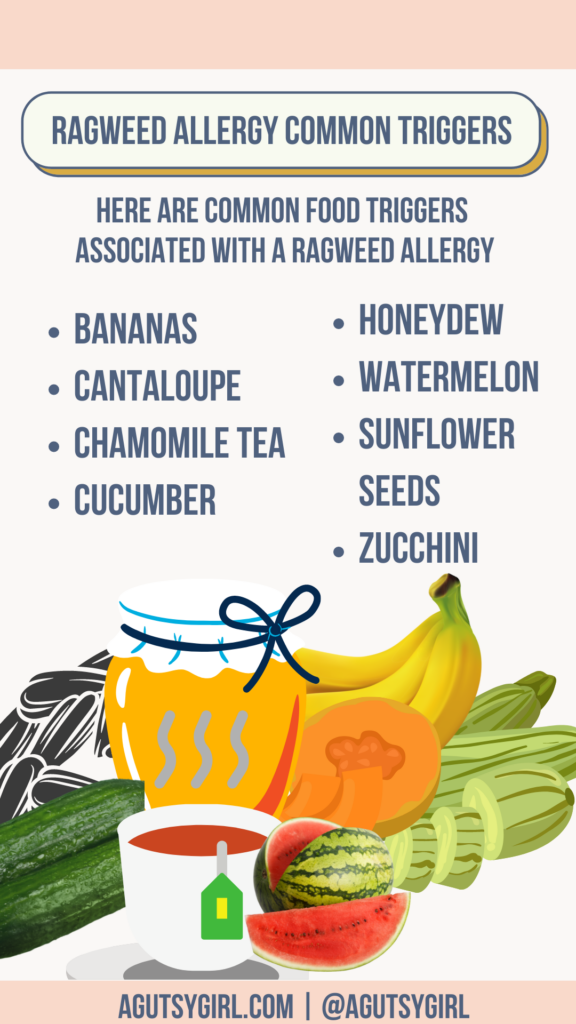
Ragweed Allergy Common Triggers
As noted in the beginning of this article, ragweed season is fall. It usually starts in early August and ends in mid-October.
Here are common food triggers associated with a ragweed allergy.
- Bananas
- Cantaloupe
- Chamomile tea
- Cucumber
- Honeydew
- Watermelon
- Sunflower seeds
- Zucchini
Grass Pollen
And last, but certainly not least are grass allergy common triggers.
Grass pollen is microscopic. You may not see it in the air. But if you’re allergic, your body may react even to small amounts.
If grass pollen affects you, late spring and early summer are your worst times of the year.
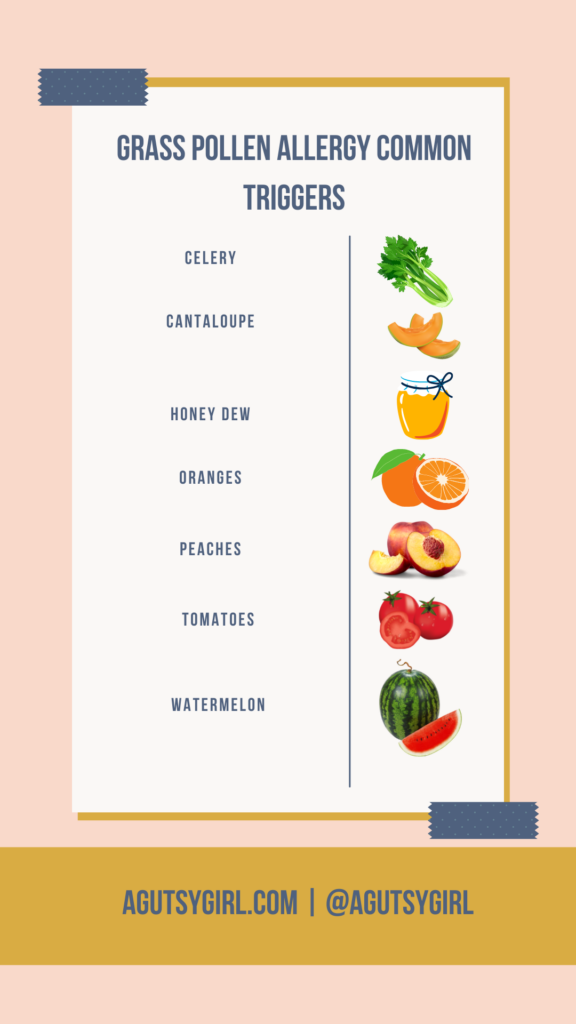
Grass Pollen Allergy Common Triggers
- Celery
- Cantaloupe
- Honeydew
- Oranges
- Peaches
- Tomatoes
- Watermelon
Your sensitivity to the foods and allergens above may also change with the season as pollen levels vary.
In addition, you may find that cooking the food you react to will eliminate or lessen the reaction.
This is because the heat used in cooking can denature the pollen proteins making them less identifiable by your body as pollen.
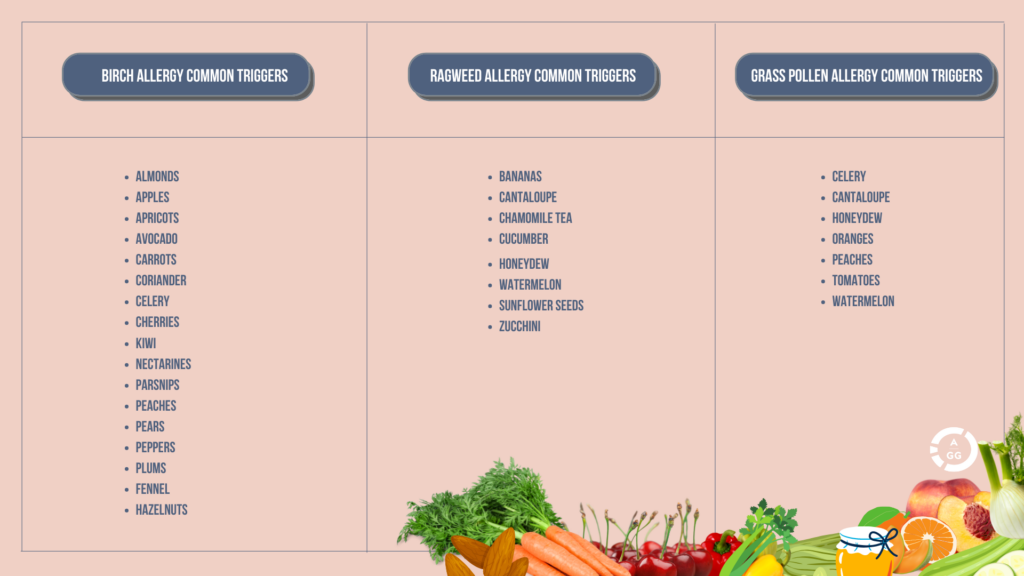
Mouth Irritation
Let’s say you have been having various mouth irritations, but your journaling tells you it’s not from any of the above foods.
Then what?
Well, then you might need to keep going down the rabbit hole.
Figuring this out can be hard. I would know because mouth problems (unexplained btw) plagued me for years.
Other mouth problems you might experience:
- blood blister in mouth
- mouth sores
- burning mouth syndrome
- hypersensitivity
- general sore mouth
- dryness
- tingling tongue
- white patches on tongue
- metallic taste in mouth
There are many other foods (besides the above) that might be causing your mouth problems.
Here are some common ones:
- foods with preservatives and additives (this is the hardest one to pinpoint)
- acid foods (in general)
- salty foods
- foods that cause drying of the mouth tissues (and then not supporting it with proper hydration)
- avocados
Avocado Allergy
You eat an avocado and almost instantly feel a miserable mouth. Why?
Well, the answer is two-fold:
- Oral Allergy Syndrome. Even though it’s not a huge cross-reactor of birch (many lists don’t include it), it is a reactor.
- Latex-Fruit Syndrome. Some people with a latex allergy are allergic to many fruits including avocado, bananas, kiwis, and melons. This condition is known as latex-fruit syndrome. Approximately 35-50% of people who are allergic to latex show sensitivity to some plant-derived foods. (source)
So how do I know all of this “mouth-chatter” anyways?
Well, because I’ve lived it and know many others who have as well.
My cousin has OAS.
All three of my children I believe do as well (I know because I hear them trying to “itch” their throats periodically. They also tell me their tongue or mouth hurts.”
And finally, well……before I understood my body, triggers, gut, and all that jazz, I, too, had massive mouth issues.
If you want to hear me talk about it, I share it on Ben Leber’s podcast.
Any questions?!
If you liked this post, you might also enjoy;
Xox,
SKH
🤰 bloating be gone! weight loss through optimal gut health for women
💃ʜᴇᴀʟ ʏᴏᴜʀ ɢᴜᴛ. ʜᴇᴀʟ ʏᴏᴜʀ ʟɪfe.
🫶🏻 founder gutbyome.com




